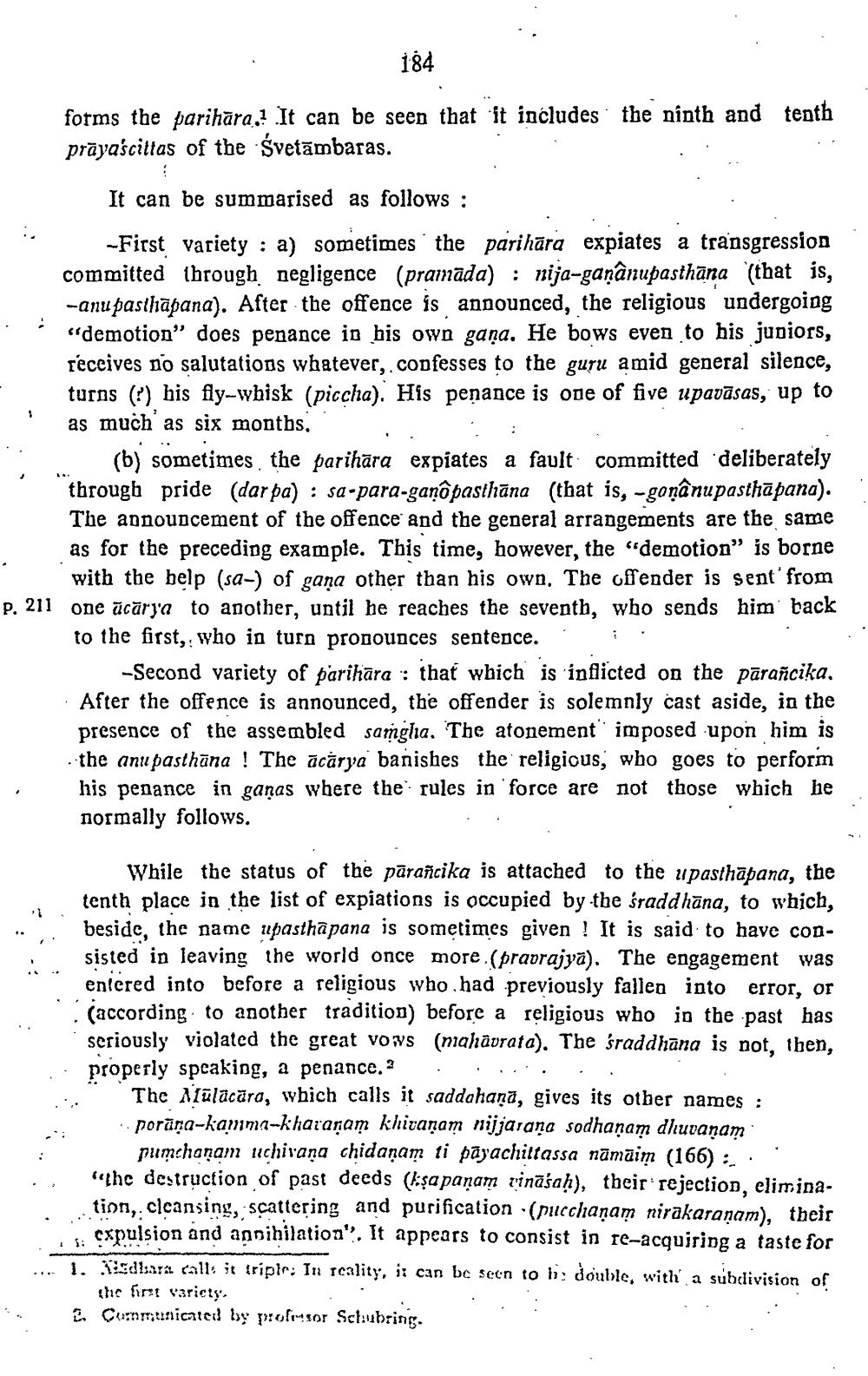________________
184
forms the parihāra,? It can be seen that it includes the ninth and tenth prāyascittas of the Svetāmbaras.
It can be summarised as follows :
-First variety : a) sometimes the parihāra expiates a transgression committed through negligence (pramada) : nija-ganânupasthāna (that is, -anupasthāpana). After the offence is announced, the religious undergoing “demotion" does penance io bis own gana. He bows even to his judiors, receives no salutations whatever, confesses to the guru amid general silence, turns (?) his fly-whisk (piccha). His penance is one of five upavāsas, up to as much as six months.
(b) sometimes the parihāra expiates a fault committed deliberately through pride (darpa) : sa-para-ganô pasthāna (that is, -gonânupasthapana). The announcement of the offence and the general arrangements are the same as for the preceding example. This time, however, the “demotion" is borne
with the help (sa-) of gaña other than his own. The offender is sent' from p. 211 one ācārya to another, until he reaches the seventb, who sends him back
to the first, who in turn pronounces sentence. i.
-Second variety of parihara : that wbich is inflicted on the parañcika. After the offence is announced, the offender is solemnly cast aside, in the presence of the assembled samgha. The atonement' imposed upon him is - the anupasthāna ! The ācārya banishes the religious, who goes to perform his penance in ganas where the rules in 'force are not those which he normally follows.
While the status of the pāraficika is attached to the upasthapana, the tenth place in the list of expiations is occupied by the śradd hāna, to which,
beside, the name upasthapana is sometimes given ! It is said to have con. sisted in leaving the world once more.(pradrajyä). The engagement was ***" entered into before a religious who had previously fallen into error, or
(according to another tradition) before a religious who in the past has
seriously violated the great vows (mahāvrata). The sraddhana is not, then, .. properly speaking, a penance. . .... .. ** The Alūlācāra, which calls it saddahanā, gives its other names :
porāna-kanna-kharanam khitanam nijjarana sodhaņam dhuvanam
pumchanam uchirana chidanam ti pāyachittassa nāmāim (166) :.. .; "the destruction of past deeds (lisa paņam zināśaḥ), their rejection, elimina
tion, cleansing, scattering and purification (pucchaņam nirakaranam), their
expulsion and annihilation". It appears to consist in re-acquiring a taste for .... T. widbara call: it tripir: In scality, it can be seen to bi: double, with a subdivision of
the first variety. 2. Communicated by professor Schubring.




